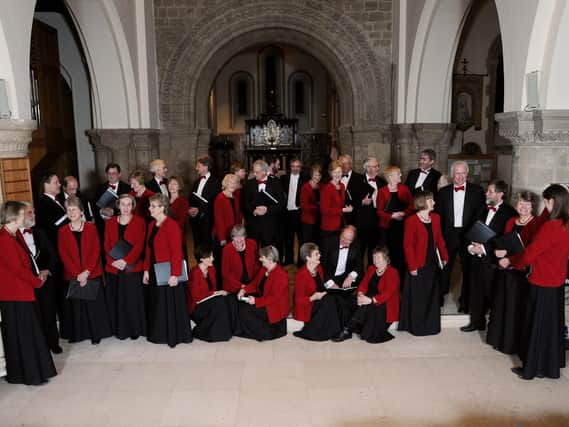x


The imaginative programming included works by English, French and German composers.
The choir began with Paul Hindemith's '˜Six Chansons', with the singers responsive to the shifting moods and textures of these short choral settings.
Advertisement
Hide AdAdvertisement
Hide AdAndré Caplet's '˜Messe à Trois Voix' followed. This work can either be sung by male or female voices, but here conductor Peter Gambie cleverly alternated male and female voices and, to great effect, combined both.
The tricky exposed unison opening Kyrie for sopranos was well controlled, with its serene mood maintained as the altos entered and the music floated into expressive three-part harmony.
Full throated singing from the men for the Gloria provided a well judged and striking contrast. The highlight for me here was the all too short, but beautifully performed Agnus Dei.
Vaughan Williams's '˜Dona Nobis Pacem' was ably accompanied by organist Mark Dancer. There were two places where I felt the additional instruments (trumpet and percussion) could have '˜backed off' a little. The first being the trumpet entry with the choir's first loud cries of '˜Dona Nobis' and the second the percussion contribution to the climax of '˜Dirge for Two Veterans'.
Advertisement
Hide AdAdvertisement
Hide AdSusan Yarnall's pure toned voice was ideal for the soprano solo and baritone Andrew Dickinson sang effortlessly and with clear diction.
Jennifer Rye and Piers Burton-Page provided the readings and I particularly
enjoyed their interaction in Rudyard Kipling's '˜My Boy Jack'.
Â
IAN SCHOFIELD